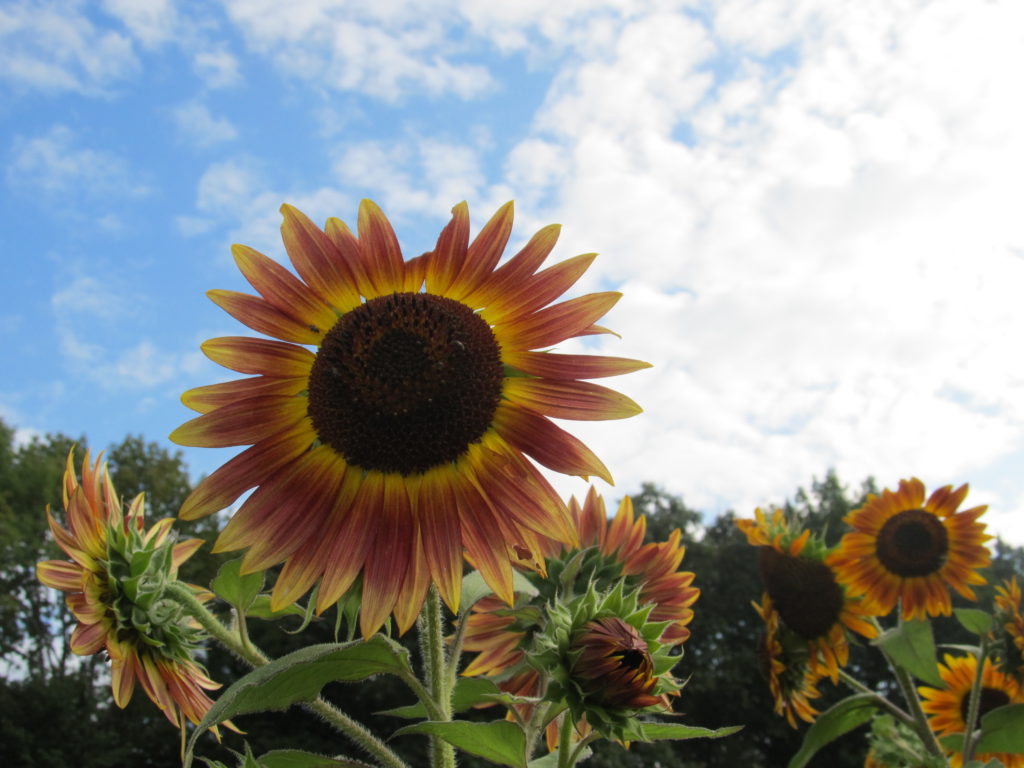
This Sunday marks the 48th annual EARTH DAY celebration. It’s a day to appreciate our natural world, and to celebrate our role and responsibility in keeping it safe, beautiful and productive. There are so many amazing habits that we can all start (or expand!) this Earth Day - from recycling at home, to composting our food waste, reducing our plastic consumption and joining local litter clean-up events.
Of course, one of our favorite ways to get involved is by getting out and planting something. For those of you who want to take it a step further, it doesn’t have to stop there. You can make your garden greener too with these 6 ideas – making every day an earth day in your garden.
1. Plant for pollinators - Pollinators help to produce about three quarters of the world’s cultivated crops and about 80% of all flowering plants. Without bees, wasps, bats, butterflies, beetles, flies, and hummingbirds our diets and our gardens would look very different… bleak. For more pollinator-friendly ideas, read Tips on how to grow friendly habitats for pollinators, and 20 pollinator-attracting varieties. To view our best pollinator-attracting varieties, click here.
2. Add life to your soil - Healthy soils are the foundation of healthy ecosystems. As we pull food from our garden, we also pull the nutrition that the plants hold in them from the soil as well. That's why it's important to give back to the garden and foster soil building practices. Organic amendments are a great way to help with this. Amendments can vary from plant-based fertilizers that deliver a range of essential nutrients, to Kelp and Alfalfa Meal which deliver Potash and Nitrogen respectively, to humic acids which will improve soil structure, as well as retain water and prevent nutrient leaching.
3. Protect bare soil with cover crops – In nature, soil isn’t meant to remain bare. Leaving it unplanted over winter can dry it out, leaving it exposed to wind erosion. Other issues can also pop up when soil is bare, including leaching of important minerals and unhappy beneficial soil critters. To fix this issue, cover crops do just what their name suggests. Winter Rye and Red Clover, in combination, do a particularly good job of keeping soil in place over the winter, leaving it healthier and stronger come spring. Click here for more tip on Soil Building for the Home Garden.

4. Plant with organic seeds wherever possible – buying local, organic seeds helps to buck the trend of seed resource consolidation by multinational biotech corporations. Growing with organic seeds means you're supporting environmentally healthy farming practices right from the start. Organic seeds are grown without harmful chemical herbicides, pesticides, and fertilizers and organic farm practices will also normally promote sustainable soil-building practices. Our seeds are non-GMO and open-pollinated. Our small seed farm is certified-organic and we carry a wide selection of organic seeds.

6. Planting for the environment – plants have many and diverse roles in our world. One amazing role is as eco-warrior, pulling out metals and toxins from the soil. To read more about the incredible properties of sunflowers and other plant eco-warriers, read Garden varieties that clean the environment.
And with that, happy Earth Day from all of us at the Hudson Valley Seed Company!








